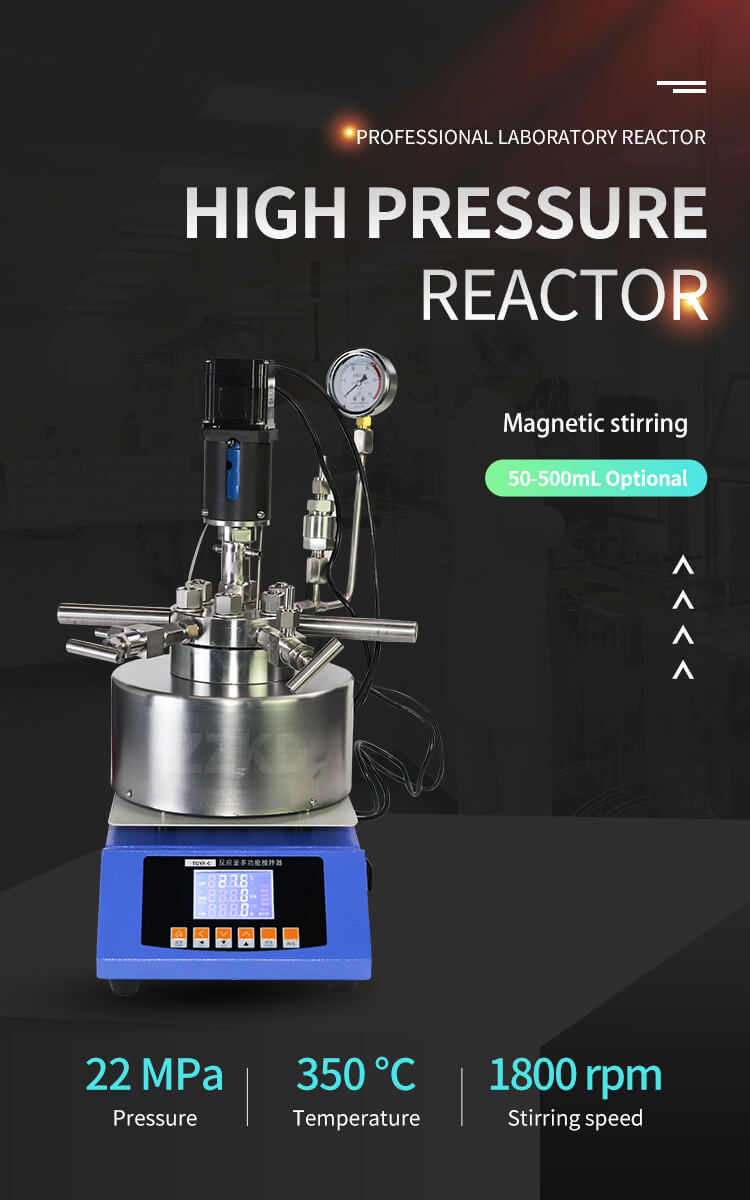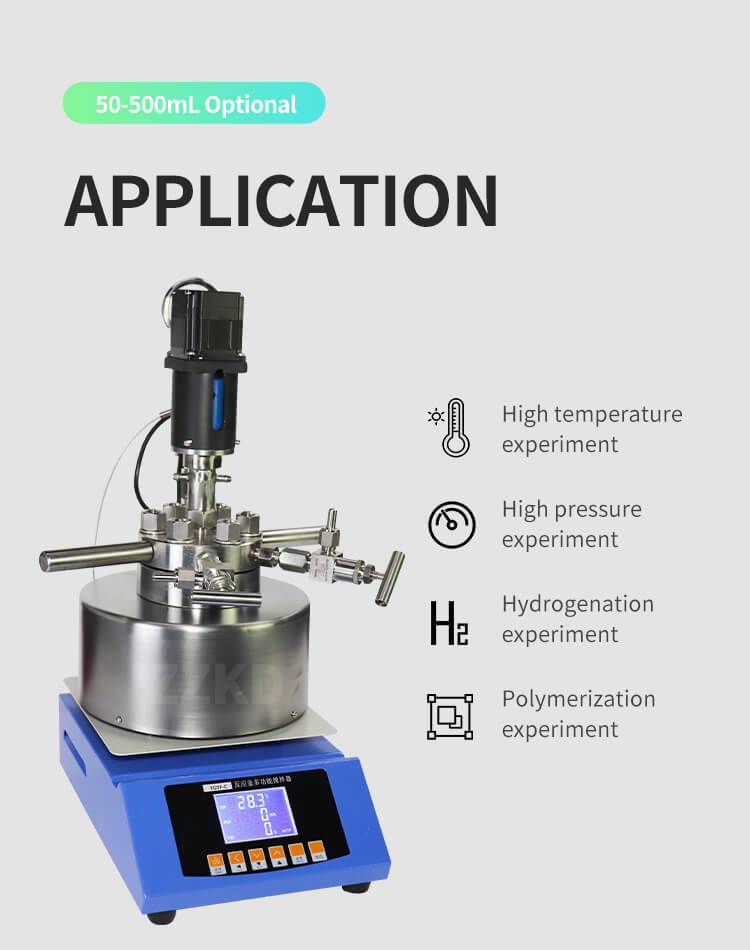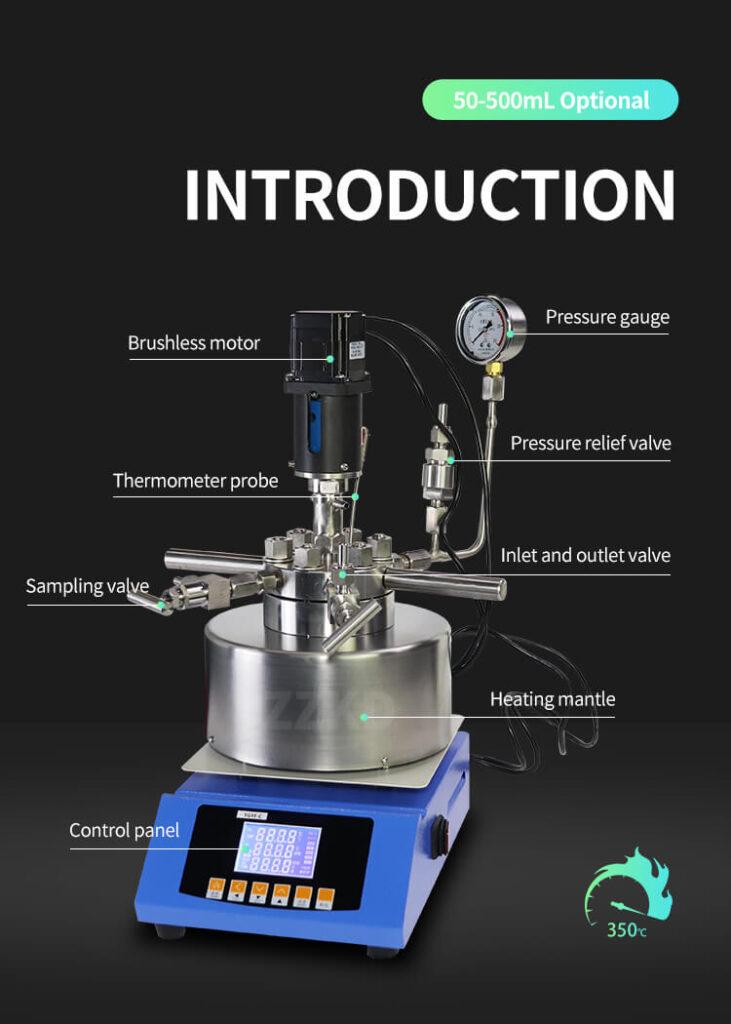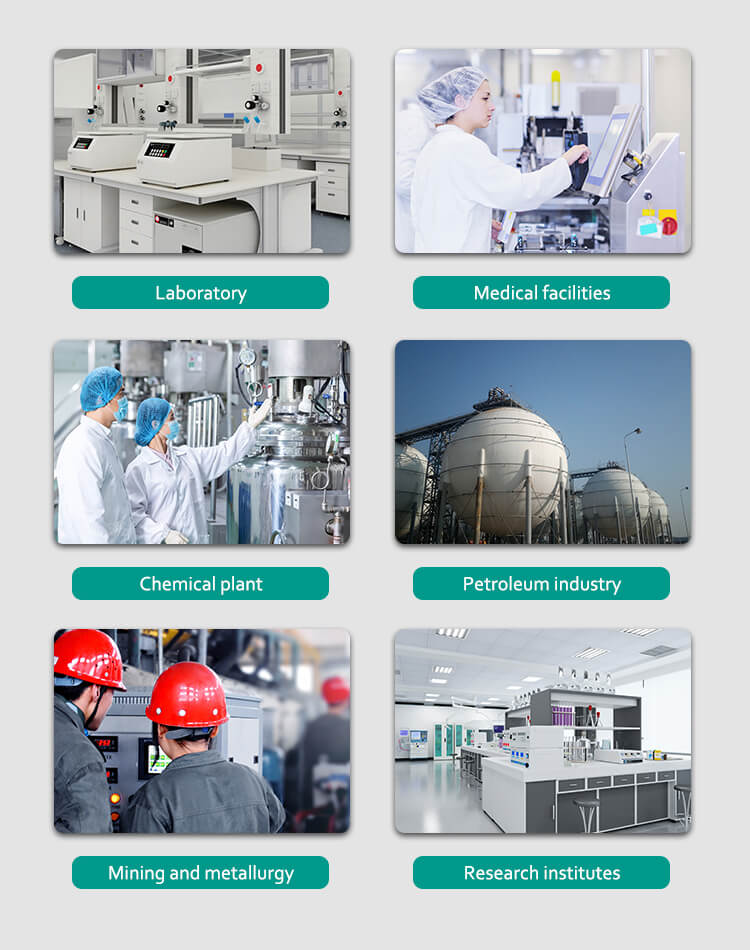Introduction to High pressure Stainless Reactor
High pressure stainless reactor, a key component in modern chemical and pharmaceutical industries, represent a significant leap in technology and efficiency. These reactors are designed to withstand extreme pressures, making them indispensable for a wide range of applications. Their robust stainless steel construction ensures durability and resistance to corrosion, making them a preferred choice for high-stress environments.
The Evolution of Reactor Technology
Historically, chemical reactors were limited by materials and design, restricting the range of reactions that could be safely conducted. The advent of lab scale high pressure reactor marked a revolutionary change. By enabling higher pressure thresholds, these reactors expanded the possibilities of chemical synthesis, allowing for more complex and efficient reactions.

High pressure Systems: Safety and Design
Safety is paramount in high pressure operations. These reactors are equipped with advanced safety features, including pressure relief valves and robust sealing mechanisms. The design of these reactors, often cylindrical with rounded edges, is a direct response to the need to evenly distribute stress and reduce the risk of pressure-related failures.
High pressure Reactor Materials: Stainless Steel
The choice of stainless steel in high pressure reactors is not coincidental. This material offers exceptional strength, corrosion resistance, and durability, which are essential for handling extreme conditions. Moreover, stainless steel’s compatibility with a wide range of chemicals makes it universally applicable.
Stainless Steel Grades and Properties
Different grades of stainless steel are employed depending on the specific requirements of the reaction process. For instance, austenitic stainless steels are often used for their excellent corrosion resistance and ability to withstand high temperatures.
Fabrication and Customization
The fabrication of high pressure stainless reactors is a precise process, often requiring customization to meet specific industrial needs. Advanced manufacturing techniques, such as welding and machining, are employed to ensure the reactor’s integrity under high pressure.


Pressure Control in High pressure Reactors
Effective pressure control is critical in high pressure reactor operations. This involves sophisticated control systems that monitor and adjust the internal pressure, ensuring safe and efficient reaction conditions.
Pressure Monitoring Systems
Modern high pressure reactors are equipped with digital monitoring systems, providing real-time data on the internal pressure. These systems are essential for preventing pressure deviations that could lead to unsafe conditions.
Automated Pressure Adjustment
Automated systems regulate the pressure within the reactor, adjusting it according to the process requirements. This automation not only enhances safety but also ensures optimal reaction conditions, leading to higher yields and efficiency.

The Role of High pressure Reactors in Industry
High-pressure stainless reactors have a significant impact on various industries, from pharmaceuticals to petrochemicals. Their ability to facilitate reactions under extreme conditions has led to the development of new products and more efficient processes.
Impact on Pharmaceutical Industry
In the pharmaceutical industry, high pressure reactors have enabled the synthesis of complex molecules, leading to the development of new medications. These reactors are essential for conducting reactions that are impossible under normal pressure conditions.
Advancements in Petrochemical Processes
The petrochemical industry benefits greatly from the use of high pressure reactors. These reactors allow for more efficient and cleaner processes, leading to the production of higher-quality fuels and chemicals.

High pressure Reactors: Future Prospects
The future of high pressure stainless reactors is linked to ongoing advancements in materials science and engineering. As new materials and designs emerge, these reactors will become even more efficient and versatile, opening up new possibilities in chemical synthesis.
Innovations in Reactor Design
Future developments may include reactors with improved heat transfer capabilities and more efficient mixing designs. These innovations will further enhance the performance and applicability of high pressure reactors in various industries.
The Integration of Smart Technology
The integration of smart technology into high pressure reactor systems is an exciting prospect. With the advent of IoT and AI, these reactors could become even more efficient, with predictive maintenance and optimized reaction conditions.
Conclusion: FBL Machinery’s Commitment
FBL Machinery and Instrument Equipment Co., Ltd. remains at the forefront of high pressure stainless reactor technology. With a commitment to innovation and quality, FBL offers state-of-the-art reactors that meet the diverse needs of the chemical and pharmaceutical industries. For those interested in exploring the potential of high pressure stainless reactors, FBL provides expert guidance and customized solutions.
Embracing the Future with FBL
In conclusion, the world of high pressure stainless reactors is one of constant evolution and innovation. For businesses looking to harness the power of this advanced technology, partnering with a seasoned expert like FBL Machinery and Instrument Equipment Co., Ltd. is a wise choice. Visit FBL’s website to learn more about their products and services, and take the first step towards revolutionizing your industrial processes with high pressure stainless reactor technology.
